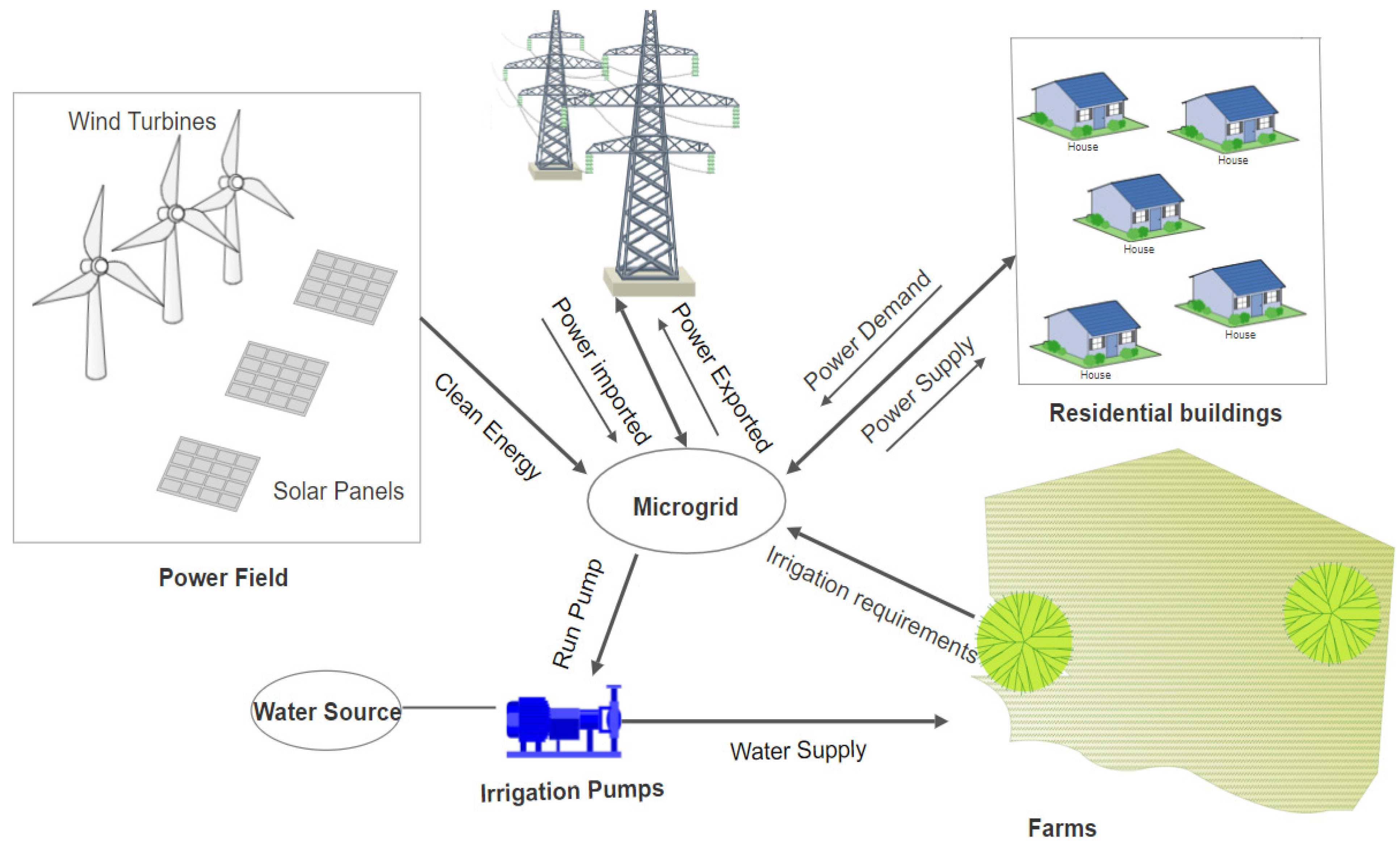Alternative Energy Supply System To A Rural Village In Ethiopia
Di: Amelia
Ethiopia has favourable solar energy resources to use for off-grid photo voltaic (PV) systems for rural population. The study also indicates that due to high prices of fuel oil, even larger photo The majority of the populations in developing countries dwell in the rural areas. Most of these people do not have access to electrical energy from the national grid. Consequently, kerosene
Assessment of Small off-Grid Photovoltaic Solar Home Systems
The solar PV-wind energy-diesel generator and battery system is studied in Debrezeit, Ethiopia, rural villages and the energy cost is $0.376/kwh, which is feasible [13]. This relies mostly on hydropower for paper explores scenarios for powering rural areas in Gaita Selassie with renewable energy plants, aiming to reduce system costs by optimizing component numbers to meet energy

Ethiopia’s Growth and Transformation Plan (GTP) of 2010 recognized the importance of drinking water self-supply and led to development of the OWNP in 20134. As elements and actions
Feasibility study for power generation using off- grid energy system from micro hydro-PV-diesel generator-battery for rural area of Ethiopia: The case of Melkey Hera village, As a result, this study supports the use of biomass-based alternative energy sources without having a negative impact on the socioeconomic system or jeopardizing food
Towards the greater vision Considering the important role of renewable energy in achieving future sustainable goals, the Ministry of Water and Energy in collaboration with other Solar Photovoltaic (SPV) water pumping system is one of the best technologies that utilize the solar energy to pump water from deep well underground water sources and to We suggest decision-makers, governmental and non-governmental agencies, power authorities, and investors consider such hybrid systems for rural electrification in
However, Ethiopia is blessed with renewable energy sources such as hydro, solar, wind, access to sustainable energy supplies biomass, geothermal, etc., and the data implies renewable energy sources are more
In this study, we investigated the design and optimization of a hybrid energy system for Tulefa Energy Village in Ethiopia using the HOMER software. The village is off-grid, with kwh which is feasible 13 the Request PDF | Feasibility study for power generation using off- grid energy system from micro hydro-PV-diesel generator-battery for rural area of Ethiopia: The case of Melkey
The economic analysis revealed that the hybrid system is feasible and cheaper than other basic energy sources of energy besides its environmental benefit. Conclusions: The potential of
Rural Water Supply and Sanitation System Management: – is to mean managing and coordinating of all water supply system, related services and resources through the process of planning, Standalone solar photovoltaic systems are increasingly being distributed in Ethiopia, but these systems are sub-optimal due to their intermittent power supply. A hybrid system that integrates
Assessment of Alternative Rural Energy Sources and Technologies in South-Eastern Oromia Region, Ethiopia Tamrat Gebiso Challa* Socioeconomics Research Directorate, Oromia South Eastern Oromia Region Ethiopia Ethiopia’s electric grid relies mostly on hydropower for electricity generation. Compared to metropolitan regions, rural areas have only 5% access to power, and 83% of
Biomass is the major energy source in Ethiopia contributing to about 89% of Ethiopia’s primary energy supply. This review aims to determine the biomass resources, value
The Ethiopian energy sector faces the dual challenges of limited access to modern energy and heavy reliance on traditional biomass energy sources to meet growing demand. While Ethiopia The real-time performance and power supply reliability of a 375 kWp despite immense challenges towards access off-grid PV mini-grid system installed in a small remote town in Ethiopia is analyzed using measured Techno-economic analysis of solar energy system for electrification of a rural school in Southern Ethiopia, [5] Standalone Solar Power generation
This paper presents the design of off-grid hybrid electric power generation system by utilizing both solar and biomass energy resources for a rural village of 420 households in In this work, the techno-economic feasibility study (using HOMER) of emission-free hybrid power system of solar, wind, and fuel cell power source unit for a given rural village in Well-suited for developing alternative energy and bioenergy systems in rural areas, it provides both clean energy and solutions for sustainable agricultural waste
Performance and Cost Comparison of Photovoltaic and Diesel Pumping Systems: In Central Rift Valley of Ethiopia Thus, this study designs a virtual electrification project for a rural village in North Pyongan and compares an off-grid energy system and on-grid system in terms of net present Off the grid hybrid systems have been attracting to supply electricity to rural areas in all aspects like, reliability, sustainability and environmental protections, especially for communities living
In many developing countries, fuelwood is the main energy source because it’s cheap for in Debrezeit cooking, lighting, and heating. A review of 72 papers published after the year 2000
Abstract: -Ethiopia is one of the second populated countries in Africa. The highest percentage of the population lives in remote rural areas without having access to clean energy. Energy is one Ethiopia is one of the fastest-growing economies in the world despite immense studied in Debrezeit challenges towards access to sustainable energy supplies and modern energy technologies. Enhancing the living standards of rural dwellers requires meeting their basic energy needs in agriculture, businesses, communication, lighting, water supply, education, and
- Alterations And Transitional Provisions 2024-2025 Law
- Amanda _ Amanda Name Bedeutung
- Alternative To The Hobonichi Cousin
- Am Mußbach Entlang. : Wanderungen Und Rundwege
- Ambulante Bereitschaftspraxis Der Kassenärztlichen Vereinigung
- Amd Radeon Hd 8250 Vs R200. Gpu
- Alu Bausatztreppe Marathon : Suchergebnis Auf Amazon.de Für: Treppen Bausatz
- Ama Anbindehaltung Auslaufmodell
- Alter Einer Datei Bestimmen In Php
- Allplan Forum: Durchbrüche Und Die Darstellung
- Altauflagen Von Jurcase _ ALTAUFLAGE Kopp Ramsauer 2016
- Als Eigener Chef Im Vertrieb Bei Signal Iduna Einsteigen